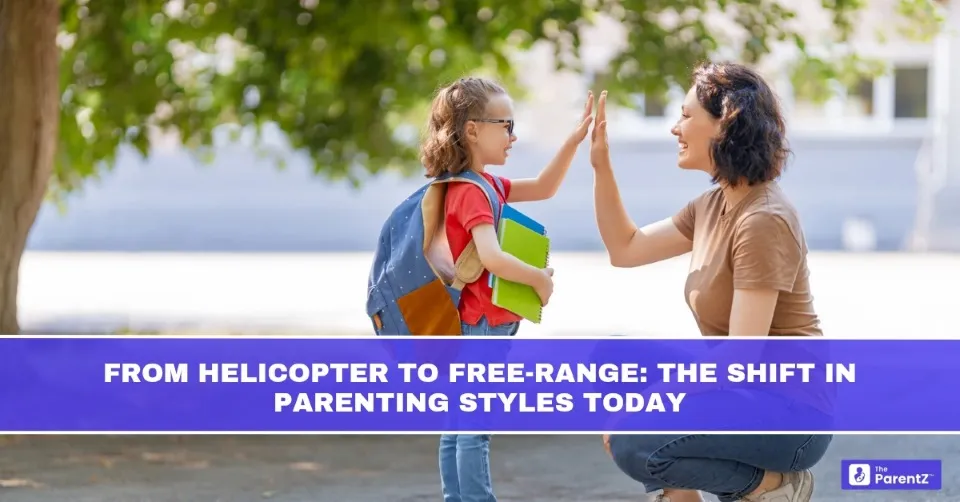Parenting is like a story passed down from one generation to the next. The way you parent today is not just something you invented; it’s shaped by the way your parents raised you, and by the way they were raised. When we pause and look at it in a cycle, we see patterns. We see changes. And we often realize that what we are doing today has roots in the past three generations of families.
Your Grandparents' Generation: The "Because I Said So" Era
Let’s start with how many of our grandparents were parented. Go back to the 1940s, 50s, and even into the 60s. Life was very different. Parenting was often strict, rule-based, and obedience-focused. Children grew up in an environment where respect for elders meant silence and discipline. Talking back wasn’t allowed. Choices weren’t offered.
This style is often known as authoritarian parenting, the "because I said so" approach. Love was always there, but it wasn’t always openly shown. Affection was expressed through providing food, shelter, and safety rather than through long heart-to-heart conversations. Survival and stability were the focus.
Your Parents' Generation: The Pendulum Swings
Then came the 70s, 80s, and early 90s. Your parents grew up watching their own parents work long hours, sometimes feeling emotionally distant. Many of them thought, "I want to do this differently."
Enter the era of involvement. Your parents wanted to be more present, more engaged. They started asking about your day, showing up to school events, and actually considering your feelings in family decisions.
But here's where it gets interesting, some swung hard in the opposite direction. They became helicopter parents, hovering over every decision, every scraped knee, every social interaction. They wanted to protect you from all the things they couldn't control in their own childhoods.
Others found a middle ground, becoming what we call authoritative parents, setting boundaries but explaining the why behind them. They started family meetings, talked about emotions, and tried to balance freedom with safety.
Today's Parents: The Information Overload Generation
Now here you are, parenting in 2025. You've got Instagram telling you about gentle parenting, TikTok showing you Montessori methods, and your pediatrician mentioning attachment theory. Your head is probably spinning.
You're dealing with challenges your parents never faced. Screen time debates. Social media pressures starting in elementary school. Information overload about everything from sleep training to which organic snacks to pack.
Many of you have embraced gentle parenting by connecting with your kids' emotions, validating their feelings, and trying to break cycles of generational trauma. You're the generation that talks about regulation, co-regulation, and raising emotionally intelligent humans.
Some of you have gone full free-range, wanting your kids to experience independence and resilience. You're bringing back some of that "figure it out yourself" energy, but with more emotional support than previous generations offered.
The Beautiful Cycle
Here's what's fascinating: each generation is responding to what they felt was missing from their own childhood. Your grandparents craved security after chaos. Your parents wanted a connection after the distance. You want balance after extremes.
Your grandparents gave structure. Your parents added involvement. You're trying to blend both while adding emotional intelligence.
But here's the thing, there's no perfect formula. That authoritarian structure your grandparents provided? It taught resilience and respect. The involvement your parents brought? It created closer family bonds. Your gentle approach? It's raising emotionally aware kids.
Finding Your Way
The truth is, you don't have to pick one style and stick to it forever. Maybe you need your grandmother's firm boundaries when it comes to safety, your parents' involvement in school activities, and your own generation's emotional awareness when your child is struggling.
The goal isn't to be perfect. It's to be intentional. Ask yourself: What did I need more of as a child? What did I get too much of? How can I give my kids what they need while staying true to who I am?
Remember, your kids aren't judging your parenting style against some perfect standard. They're watching how you handle mistakes, how you show love, and how you help them navigate this complicated world.
Conclusion
Every generation of parents has done their best with what they knew at the time. Your grandparents weren't wrong for being strict, as they were creating safety in an uncertain world. Your parents weren't wrong for being involved as they were building a connection. And you're not wrong for questioning everything as you're trying to create balance.
The shift in parenting styles isn't about right or wrong. It's about evolution. Each generation adds something valuable to the mix while trying to heal what felt broken in their own experience.
So give yourself some credit. You're part of a generation that's thinking deeply about how to raise healthy, happy humans. That awareness alone is a gift you're giving your kids.
Trust yourself. Take what works from each generation. Leave what doesn't. And remember, the fact that you care this much about getting it right probably means you already are.





Be the first one to comment on this story.